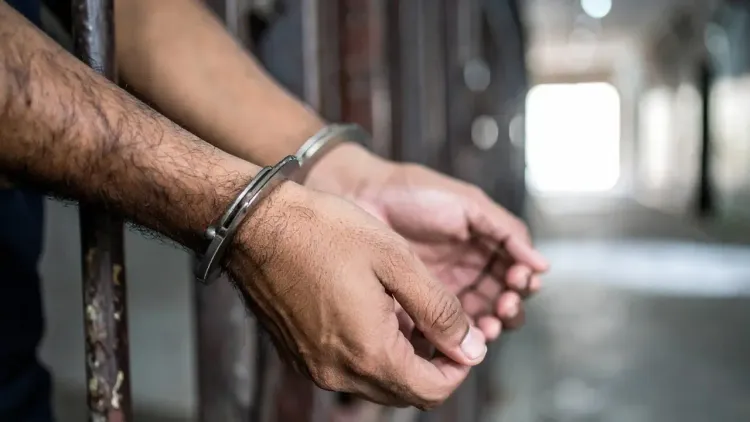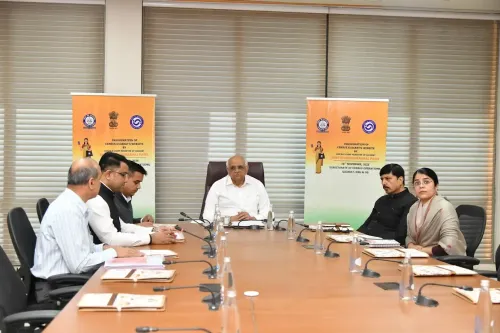Has a Kerala Businessman Finally Been Caught by the CBI After 13 Years?

Synopsis
Key Takeaways
- 13-year pursuit culminates in arrest.
- Proclaimed Offender Surendran J. apprehended.
- Involvement in Rs 1.5 crore bank fraud case.
- Utilized forged documents for fraud.
- CBI shows commitment to tackling financial crimes.
New Delhi, Sep 21 (NationPress) Concluding a lengthy pursuit that lasted 13 years, the CBI apprehended a Proclaimed Offender in Kollam, Kerala, linked to a Rs 1.5 crore bank fraud case in Punjab, as confirmed by an official on Sunday.
The individual, Surendran J., a resident of Kulakkada Panchayat in Kollam, was taken into custody on September 18 after being located through advanced technical surveillance, according to the statement from the official.
Surendran, who owns the business Stich and Ship in Kollam, along with others, was charged by the Central Bureau of Investigation (CBI) in July 2010 for allegedly obtaining foreign bill purchase credit of Rs 1.5 crore using fraudulent documents from Bank of India in Ludhiana.
As a principal conspirator, Surendran was previously included in a charge sheet submitted to a Special CBI Court in SAS Nagar, Mohali, Punjab, as reported by the CBI.
After failing to appear for the trial, he was declared a Proclaimed Offender by the court in 2012. The CBI mentioned that despite persistent efforts to locate him, he remained elusive.
Recently, through a combination of technical intelligence and ground checks, his whereabouts were confirmed in Kollam district, leading to his apprehension, as stated by the federal investigative agency.
Following his arrest, Surendran was presented before the Chief Judicial Magistrate's court in Thiruvananthapuram on Friday.
The court granted the CBI’s request for a transit remand, allowing him to be presented before the Special CBI Court in Mohali, Punjab.
According to the CBI, Surendran was subsequently processed in the Special CBI Court, Mohali, on Saturday, where he was remanded to judicial custody.
Surendran managed to defraud the bank by exploiting a credit facility typically available for exporters. He submitted counterfeit documents for the Foreign Bill Purchase (FBP)-related short-term credit facility designed to assist exporters in managing cash flow while awaiting payments from international clients.









